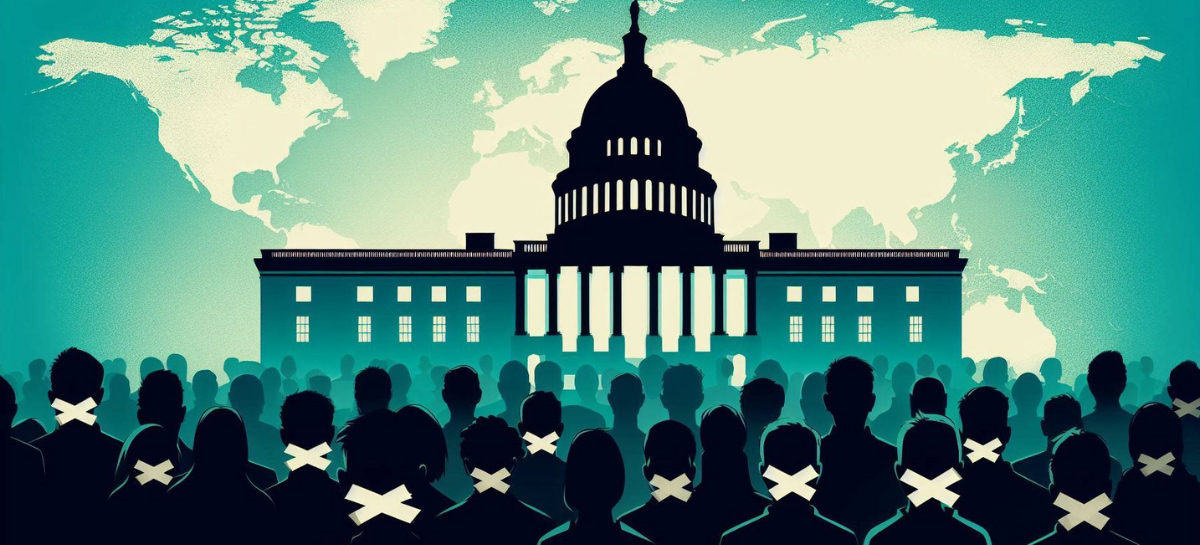
“Even open democracies have implemented restrictive measures,” finds a global report.
By J.D. Tuccille
[ . . . ]If you think free speech is under attack in the United States—and it is—you should see its besieged status in the rest of the world. Open contempt for unrestricted debate prevails in even many supposedly “free” countries and finds its expression in laws that threaten harsh penalties for those who dare to speak in ways that offend the powers that be.
Unfortunately, restrictive legislation and hollow assurances by the authorities that they’ll use their authoritarian powers wisely are far more the global norm than are American-style protections for speech. We complain about government attempts to muzzle, but open censorship is increasingly common in other countries.
“The global landscape for freedom of expression has faced severe challenges in 2023,” according to The Free Speech Recession Hits Home, a report by The Future of Free Speech. “Even open democracies have implemented restrictive measures.”
The report surveys speech regulations in 22 democracies since 2015 and finds a grim situation. Besides the examples above, there is Australia’s crackdown on alleged disinformation, the UK’s Online Safety Bill, the European Union’s Digital Services Act, Denmark’s revived blasphemy ban, Italy’s libel judgments against government critics, France’s and Germany’s restrictions on pro-Palestinian protests, and more.
Across the countries surveyed, “except for 2015, every year witnessed a majority of developments limiting expression, with a noticeable upsurge in 2022,” notes the report. “National security, national cohesion and public safety were the most cited reasons for limiting expression…. Intermediary obligations and hate speech laws accounted for 18.3% and 17.8% of restrictions, respectively, with notable implications in countries like Norway, Denmark, and Spain.” As defined in the report, “intermediary obligations” are duties imposed on platforms, such as Facebook, to act as proxy censors.
On the plus side were some strengthened protections for press freedom and protest. Of course, the press must operate under all those restrictions on “hate speech,” and protests are subject to curbs when governments find their subjects too sensitive or just inconvenient.
America’s Protections Against the Censors
The Free Speech Recession Hits Home records attacks on free speech in the U.S., as elsewhere. But this country, importantly, has a strong free speech culture and real constitutional protections. America is third on Justitia’s index of public support for free speech (after Norway and Denmark), and restrictive laws and government schemes to suppress speech are often voided on First Amendment grounds.
[ . . . ]
